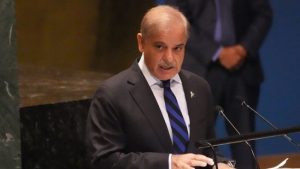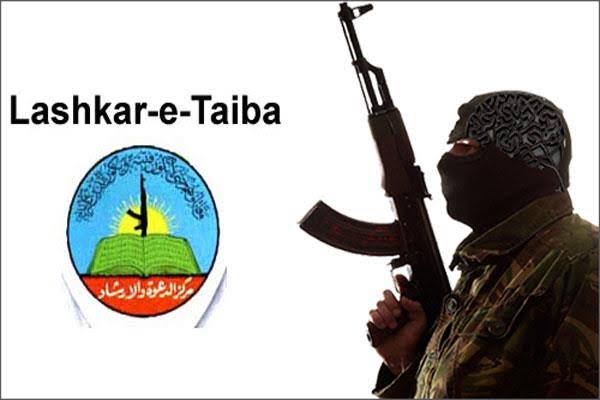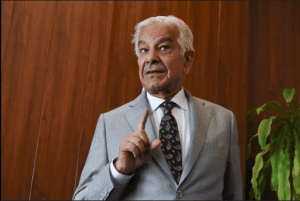Washington D.C. – The United States has taken decisive action in international counter-terrorism efforts after the US lists TRF as terrorist organisation following the devastating Pahalgam attack. Secretary of State Marco Rubio announced the formal designation of The Resistance Front as both a Foreign Terrorist Organization and Specially Designated Global Terrorist, marking a significant escalation in America’s response to terrorism targeting civilians.
This landmark decision came approximately three months after TRF claimed responsibility for the April 22 Pahalgam assault that resulted in 26 civilian casualties. The attack represented the deadliest assault on civilians in the region since the notorious 2008 Mumbai attacks orchestrated by Lashkar-e-Taiba, establishing a clear pattern of escalating violence that prompted international intervention.
Pakistan’s Defensive Response Strategy

Pakistan’s immediate reaction to the news that US lists TRF as terrorist entity was characterized by defensive positioning and questioning of the underlying investigation. The country’s foreign ministry released a comprehensive statement challenging the designation’s foundation, claiming that investigations into the Pahalgam attack remained inconclusive and insufficient to justify such international action.
Pakistani officials emphasized their nation’s purported commitment to counter-terrorism, describing themselves as maintaining zero tolerance toward terrorist activities. This response strategy appeared designed to deflect criticism while positioning Pakistan as a cooperative partner in global counter-terrorism efforts despite evidence suggesting otherwise.
Lashkar-e-Taiba Connection Revealed


Intelligence assessments that led to the US lists TRF as terrorist designation revealed TRF’s operational relationship with Pakistan-based Lashkar-e-Taiba. American authorities determined that TRF functions as a front organization for LeT, allowing the banned group to continue operations while maintaining plausible deniability through proxy structures.
Also Read: Pak Drones Heroin Seized In Amritsar: Massive BSF Operation Foils 2.3 Kg Of Cross-Border Smuggling
This revelation exposed sophisticated terrorist organizational methods, where established groups create subsidiary entities to circumvent international sanctions and monitoring efforts. The connection between TRF and LeT demonstrates the evolution of terrorist networks adapting to increased international pressure through organizational fragmentation and rebranding strategies.
Financial Sanctions and International Impact
The designation that US lists TRF as terrorist organization triggers comprehensive financial sanctions restricting the group’s access to support from individuals and entities under American jurisdiction. These measures effectively freeze assets, prevent financial transactions, and criminalize material support for the organization within United States territory and influence.
The sanctions framework represents a powerful tool for disrupting terrorist financing networks, cutting off funding streams that enable operational activities. International banking systems and financial institutions must now comply with these restrictions, creating significant obstacles for TRF’s resource acquisition and operational sustainability.
Pakistan’s Counter-Terrorism Claims


Following the announcement that US lists TRF as terrorist entity, Pakistani authorities emphasized their supposed frontline role in combating terrorism globally. The foreign ministry statement highlighted Pakistan’s claimed contributions to international peace through counter-terrorism efforts, including the apprehension of terrorist mastermind Sharifullah, responsible for the Abbey Gate bombing.
Pakistan characterized itself as a “counter-terrorism bulwark” while disputing any meaningful connection between TRF and Lashkar-e-Taiba. Officials claimed that LeT had been comprehensively dismantled, with leadership arrested, prosecuted, and cadres deradicalized, assertions that contradict intelligence assessments supporting the American designation.
Ground Realities Versus Official Claims
The Pakistani assertion that connections between TRF and LeT contradict ground realities appears inconsistent with the evidence that prompted the US lists TRF as terrorist designation. Intelligence agencies have documented operational links, financing networks, and personnel overlap between these organizations, suggesting continued collaboration despite official denials.
Pakistan’s claims of having effectively dismantled LeT operations face scrutiny given TRF’s continued activities and the devastating Pahalgam attack. The persistence of terrorist operations under different organizational names indicates that dismantling efforts may have been superficial rather than substantive.
India’s Prior Designation and Advocacy
India had previously recognized the threat posed by TRF, formally designating the group as a terrorist organization in January 2023 under the Unlawful Activities Prevention Act. This proactive step preceded the US lists TRF as terrorist decision by over two years, demonstrating India’s early recognition of the organization’s dangerous capabilities and intentions.
According to terrorism monitoring organizations, TRF announced its existence on social media platforms in 2019 and subsequently claimed responsibility for multiple attacks across Jammu and Kashmir. These included grenade attacks in Srinagar that injured civilians and targeted killings throughout 2021, establishing a pattern of violence against non-combatants.
International Diplomatic Efforts
India’s sustained diplomatic campaign contributed significantly to the eventual decision where US lists TRF as terrorist organization. New Delhi provided comprehensive inputs to the United Nations 1267 Sanctions Committee monitoring team during May and November 2024, along with previous submissions in 2023, building a detailed case for international action.
These diplomatic efforts included sharing intelligence dossiers with American officials and United Nations committees, demonstrating the systematic approach required for successful international terrorist designations.
Regional Security Implications
The decision that US lists TRF as terrorist entity carries significant implications for regional security dynamics in South Asia. The designation reinforces international recognition of terrorist threats emanating from the region while potentially constraining Pakistan’s ability to provide tacit support for proxy organizations.
Future Counter-Terrorism Cooperation
The landmark designation where US lists TRF as terrorist organization establishes important precedents for international counter-terrorism cooperation. This action demonstrates commitment to addressing civilian-targeting terrorist groups regardless of their organizational structure or claimed affiliations, potentially encouraging similar designations by other nations and international bodies.

